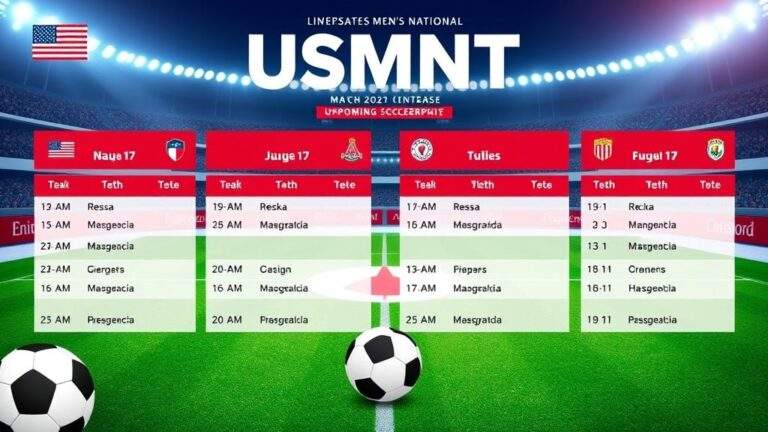
Introduction
In the vibrant world of manga, few genres spark as much debate as hentai manga. Specifically, naruto hentai manga reimagines characters from the beloved Naruto series in explicit, adult scenarios, captivating a niche audience while stirring controversy. This article explores the definition, origins, cultural impact, and ethical considerations of naruto hentai manga.
By examining its appeal, legal complexities, and societal implications, we aim to provide a balanced perspective on this polarizing genre. Whether you’re curious about its popularity or concerned about its implications, this exploration offers insights into a unique facet of manga culture.
What is Hentai Manga?
Hentai manga is a subgenre of Japanese comics defined by explicit sexual content. The term “hentai,” meaning “pervert” in Japanese, highlights its focus on sexual themes. Unlike mainstream manga, which may include romance, hentai manga features overt sexual acts and diverse fetishes. It caters to varied tastes, often exploring taboo subjects. Naruto hentai manga, for instance, involves fan-made works depicting
Naruto characters in adult scenarios. Despite its controversial nature, hentai manga enjoys a significant following globally, contributing to the manga industry’s diversity and cultural influence.
Origins and Cultural Context
Hentai manga’s roots trace back to Japan’s Edo period (1603-1868), where ukiyo-e woodblock prints often depicted erotic themes artistically. In the 20th century, hentai manga emerged as a distinct genre with the rise of modern manga. The 1970s saw ero-gekiga magazines popularize explicit content, shaping the genre’s evolution. Naruto hentai manga reflects this tradition, leveraging Japan’s historical openness to sexual themes in art.
However, cultural attitudes toward censorship and sexuality continue to influence its development, making it a unique yet contentious part of manga culture.
The Phenomenon of Naruto Hentai Manga
Naruto, created by Masashi Kishimoto, is a global manga phenomenon with a rich narrative and beloved characters. Its popularity has spawned fan works, including naruto hentai manga. These creations place characters like Naruto and Sasuke in explicit scenarios, extending the series’ universe beyond its original scope.
Fans use these works to explore alternative narratives, often driven by personal fantasies. This phenomenon underscores the creative power of fandom, where naruto hentai manga serves as a medium for fans to engage deeply with the series’ world.
Why Naruto?
The appeal of naruto hentai manga stems from the series’ massive fanbase and emotional resonance. Naruto’s well-developed characters, such as Hinata and Sakura, inspire fans to reimagine them in new contexts. The genre allows fans for creative expression, exploring fantasies not possible in the original series.
Moreover, the Naruto universe’s rich lore provides a versatile backdrop for adult narratives. This fan-driven creativity highlights how naruto hentai manga extends the series’ cultural impact, blending devotion with artistic liberty.

Legal and Ethical Considerations
Naruto hentai manga raises complex legal and ethical issues. As fan-made content, it often uses copyrighted characters, leading to potential legal conflicts. Ethically, the genre’s explicit nature, especially in subgenres like lolicon, sparks debates about its societal impact. These considerations challenge the balance between creative freedom and responsibility, making naruto hentai manga a focal point for discussions on intellectual property and moral boundaries.
Copyright Issues
Fan-made naruto hentai manga often infringes on the intellectual property of Naruto’s creators. While some companies tolerate fan works, others pursue legal action to protect their brands. The line between homage and violation is blurry, complicating legal outcomes.
For instance, unauthorized naruto hentai manga may breach Kishimoto’s rights, prompting legal scrutiny. As fan culture grows, the manga industry must navigate these challenges to balance creativity with intellectual property protection.
Ethical Concerns
Ethically, hentai manga, including naruto hentai manga, faces criticism for potentially normalizing harmful behaviors. Research suggests a correlation between explicit content consumption and increased acceptance of rape myths or aggressive behaviors. Subgenres like lolicon, depicting minors, intensify these concerns, raising questions about societal impact.
Critics argue that fictional content can influence real-world attitudes, while supporters defend it as harmless artistic expression. This debate underscores the need for careful consideration of naruto hentai manga’s ethical implications.

Cultural Impact and Controversy
Hentai manga, including naruto hentai manga, significantly influences global perceptions of Japanese culture. While manga enjoys widespread popularity, hentai’s explicit nature often faces censorship and bans. Its controversial status sparks debates about cultural norms, freedom of expression, and societal values, positioning naruto hentai manga at the heart of global cultural discussions.
Global Reception
Globally, naruto hentai manga receives mixed reactions. In Japan, hentai is part of the manga ecosystem, regulated by specific laws. However, countries like Iran and Singapore impose strict bans due to cultural differences. In the U.S., virtual explicit content is protected under free speech, yet ethical debates persist. This varied reception highlights how naruto hentai manga navigates diverse cultural landscapes, reflecting both acceptance and resistance.
Debates on Freedom of Expression
The debate over naruto hentai manga centers on freedom of expression versus potential harm. Supporters argue it’s a legitimate art form, protected as free speech, with no direct link to real-world harm. Critics, however, contend that explicit content, especially involving minors, may normalize harmful behaviors.
Legal rulings, like the U.S. Supreme Court’s stance on virtual content, support its legality, but ethical concerns drive calls for regulation. This tension shapes the ongoing discourse around naruto hentai manga.

Market Impact of Hentai Manga
Hentai manga, including naruto hentai manga, plays a notable role in the manga market. In Japan, it dominates the doujinshi market, where self-published works thrive. Internationally, digital platforms have expanded its reach, catering to niche audiences. The demand for naruto hentai manga reflects fans’ desire for unique narratives, driving market growth and highlighting its economic significance.
Economic Significance
Hentai manga’s economic impact is substantial, with Japan’s doujinshi market valued at over $500 million, a significant portion from hentai titles. Globally, digital distribution has boosted its revenue, with naruto hentai manga contributing to this growth. The genre’s profitability underscores its commercial viability, supporting artists and platforms while fueling debates about its place in the manga industry.
FAQs
Q: Is hentai manga legal?
A: The legality of hentai manga, including naruto hentai manga, varies by country. In Japan, it’s generally legal with regulations, but countries like Iran and Singapore impose bans, especially on content depicting minors or copyrighted characters.
Q: What makes Naruto hentai manga popular?
A: Naruto hentai manga is popular due to the series’ large fanbase and emotional depth. Fans explore alternative narratives, fulfilling fantasies not addressed in the original series, leveraging Naruto’s rich world.
Q: How does hentai manga affect the original series?
A: Naruto hentai manga doesn’t directly alter the original series but can influence public perception. It may also lead to legal issues if it infringes on copyrights, potentially affecting the creators’ reputation.
Conclusion
Naruto hentai manga embodies a complex blend of fan creativity, cultural expression, and ethical challenges. It offers fans a space to explore fantasies but raises questions about legality and societal impact. As manga continues to shape global culture, understanding naruto hentai manga provides insights into fan dynamics and industry challenges. Explore the broader manga world to appreciate its diversity and influence, and join the conversation about creativity and responsibility in this vibrant medium.
Call to Action
Dive deeper into manga’s cultural impact by exploring academic resources and diverse perspectives. Share your thoughts on how naruto hentai manga and similar genres shape fandom and spark debate.





